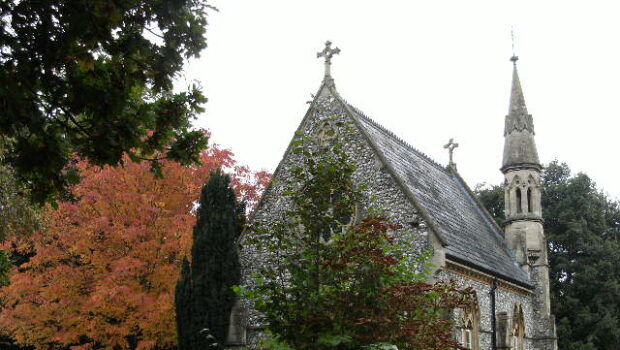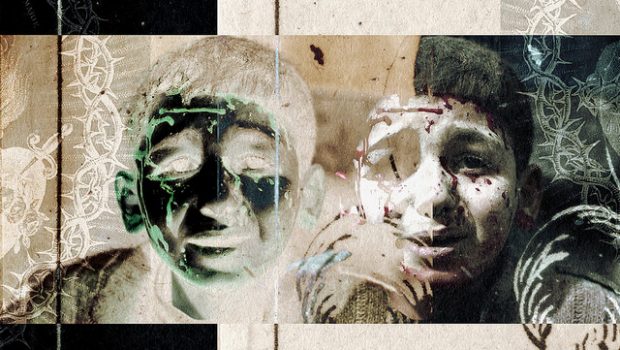Pictures of Autumn
Estampas de otoño
Adriana Díaz-Enciso
for Amanda and Nick
A couple of weeks after publishing in these space the second part of my reflections—my disenchantment, my sense of suffocation, my rage even—about the sorrowful state of what we call the literary world in our times, I received yet another email titled “How to Win a Poetry Award”, which enumerated the steps to follow in order to attain such a goal. The advice, as the goal itself, I can only describe as abject.
The piercing suspicion that I can’t communicate anymore with this world (not only the literary, but the world in its entirety: mechanical, blind, incomprehensible); that I don’t speak the same language, that I will fall mute forever, only got worse. Perhaps the time has come to unsubscribe from absolutely every cultural and literary organisation; to miss, unfortunately, a handful of marvellous dialogues and surprises to save myself from this proliferation of messages that have nothing to do with me and that darken the spirit. There is of course the risk that, by eluding the noise, I’ll be left talking to myself, but sometimes I think that that’s what I’ve been doing for a long time anyway.
It’s October. The treetops change swiftly from green to a vast array of extraordinary colours, all fire and gold, and when there is sunshine light carries you away in its transparency. Cristal-clear, it casts on the façades the trees’ perfectly outlined shadows and an impatient breeze stirs the leaves in a hypnotic dance, a magic-lantern show in which the dry leaves are the music too. But it doesn’t matter how clear the day is, or how intensely blue a sky of infinite depth, on buses or the overground, with all windows open to the light, most passengers travel with their gaze stuck to the screens of their mobile phones. Sometimes that too awakes my fury, my fear (what have we become?, where are we going?), but, most of all, my sadness, or let’s call it, plainly, desolation. I feel like shaking them and shouting: ‘Can’t you see the day, this intoxicating light in each and every one of its unique reflections? Just as every instant of this day under this sky is unique, never to be again. Can’t you see it?’
Ah, the endless lockdowns of Covid, that master disguised as enemy that was going to teach us how to understand the value of our life and our world, haven’t been enough! We were going to learn, if we listened, how to see anew. Free again to go around town (at least for the time being), our eyes are still blind, our soul trapped in a miserable screen that snatches away from us the reflection and the instant, our mind stupefied, addicted, hopelessly fractured. These are now Blake’s dark Satanic Mills.
In such conditions, quietude is elusive even at the diaphanous core of beauty, and every message that comes from screens and newspapers seems to be baleful news—national, international, planetary.
One weekend I went to visit friends in Norwich. I hadn’t been to see them since the pandemic started. To my surprise, the train is crowded, and at every town it stops it is boarded by more and more passengers, most of them with no facemasks, until it’s packed tight. They are standing or sitting on the floor, with the barely contained excitement of those on their way to a great public event. Indeed, I find out, that day there will be a football match in Norwich. Despite all my precautions, and the Covid test I had done before travelling, I am now exposed to contagion more than I have ever been in these nearly two years, and my test’s negative results start to seem to me news from a remote past. At the two last stops the conductor says through the loudspeakers that no one else can board the train; he asks passengers not to block the doors, but people don’t listen and they keep on walking in. My fear of contagion is soon transformed into crowd panic, unable as I am to move or even try to get near the door. And yet, the atmosphere in the train is festive.
Four lads laugh and drink Corona beer, with the visible effort, joyful and painful at once, of appearing adult and free. Beside me, a talkative 84-year-old woman who’s coming back from Portugal is having great fun and takes a picture of the carriage. One of the young men asks her, trying to be defiant without much success, what does she want the picture for; he doesn’t want her to get him into trouble. “This is just delirious!”, she says, laughing. “Don’t worry; I won’t tell anybody that you have impregnated me”.
When we finally arrive at Norwich, the station is full of police, waiting for the football fans with an expression almost as relaxed and festive as them on their face; October’s light makes objects thin and translucid while emphasising shadows, and it seems to me that the sky above the station and myself is infinitely expanding.
The stadium is quite near and the hordes keep on arriving, their face illuminated by the same light which is like burnished gold, ennobling those faces which are already illuminated by laughter and expectation, and I wonder if it’s OK to allow people to go to football matches when Covid cases are still rising, whether I should be terrified of having been infected, or if my immediate reaction, once recovered from the fear of being crushed to death (and surely I exaggerate), which is one of celebration and a perhaps reckless accord, is the right one: the one that life is demanding so that it can go on being life, so that we can all go on. I don’t know about you, but as far as I’m concerned, the pandemic has unhinged my instincts.
I’ve been reading Baudelaire again, The Spleen of Paris, and I come across his description of the Autumn sky: un ciel d’automne charmant, un des ces ciels d’où descendent en foule les regrets et les souvenirs.
These skies bring to me indeed a multitude of memories; an instant return to innumerable moments of my life lived in an equal clarity, as if the light’s extreme transparency laid me bare of all history, leaving only the exact sensation of lived experience, without any interpretation to disturb it. A joy that becomes melancholy as soon as reason bursts in, inopportune, making me wonder if those moments that come back to memory are “what is lost”. Might Baudelaire be referring to that when he talks about regrets?
Be it as it may, I love this light, this golden prelude to winter, this interregnum, the time of year that hovers closest to the sky. To look out of the window and see the foliage from afar—a tree that is all burning ochre against the intense and luminous yellow of a taller tree and, beyond, treetops that are still green, still bountiful. The sky full of birds.
It is clear, then, that not everything is lamentation over an autistic, rude, violent and broken-down world. The world is this too, the daily and elusive forms of miracle, those that do not demand for any meaning to be imposed upon them. And yet, how tiresome its noise is sometimes!
During my weekend in Norwich, my friends took me to a place that, though near their home, had remained hidden even for them until they started to explore their surroundings more assiduously during the pandemic: Earlham cemetery.
The cemetery opened its doors in 1856; it has been extended throughout the years and keeps on receiving its taciturn tenants, but it isn’t only a space for death. My impression as I walked in on that clear morning was that of place bursting with life and greenery. Like opening an invisible door to enter a parallel universe, the radiant light tamed and transformed by the foliage, the diverse paths among the tombs an invitation to the soul’s rearrangement, to restraint in the human din so that we can access the immeasurable: paths of stillness that get lost among the trees, the slow and burning dance of the dry leaves as they fall, the awareness of the silence of all the souls that the tombstones insist on calling. The stone on many of them is beautifully carved; there are angels and other imprecise guardian figures, then a Christ. Among the remains of breaths that died out nearly two hundred years ago there are also those of recent burials (a tomb that is still just a heap of freshly dug earth covered with flowers and wreaths); the area for those children who remained children forever, with its sadness clad in colour, toys and pinwheels that also call them by their name, moved by the breeze; the brief and moving mark that signals a future resting place, the eternal repose, for there will be no more time, for those who have decided that this is where, when the time comes, they want to surrender the mystery of matter and its transfiguration.
As I walked, following the curves of one of the paths without wanting to stop, as if the morning were infinite, I remembered writing one of my first poems, Panteón de Belén (“Belén Cemetery”), when I was very young, after spending another, distant morning in Guadalajara, my hometown, engrossed in that dialogue with what has grown quiet, subject to a time that no one measures, among tombs and trees of quite a different kind—I remember the sweetness of the guavas. The memory was as if one experience were superimposed on the other, with no interval or fracture: the urgency to treasure somehow the intensity of peace and silence, the sweet company of the dead, the humble sign of love enunciated in tombstones and monuments. And yet so much life has flowed since then, and I am so much another me.
In another country, watching a tree blaze —the spectacle of indescribable glory in the death of leaves. Reading the inscriptions of lives that are no more, some of them pathetically brief, my soliloquies of the past few days were snuffed out too. Momentarily the raging and the fear died out. All that was left was the awareness of a solemn and inescapable truth receiving my steps. The din ends, even if it is to start again, in other voices and in other hearts. Stillness is truly the final destiny of all striving.
And then another truth, somehow a mirror of the latter: this autumn light is denied to no one; it makes beautiful too the face of those who go without seeing it, engrossed in their mobile’s screen; generous and harbouring no malice, it gives them the glow of the face of angels. Its grace is that powerful, and it keeps on illuminating the world when silence and stillness come. Surrounded by that placid beauty, it seemed to me the highest truth.
Para Amanda y Nick
Un par de semanas después de publicar en este espacio la segunda parte de mis reflexiones —mi desencanto, mi sensación de asfixia, mi ira incluso— sobre el lamentable estado del llamado mundo literario en nuestros días, recibí un nuevo email titulado (en inglés) “Cómo ganar un concurso de poesía” que enumeraba los pasos a seguir para alcanzar tal fin: consejos, al igual que el objetivo, que sólo puedo calificar como abyectos.
Se recrudeció mi punzante sospecha de que no puedo comunicarme más con este mundo (no nada más el literario, sino el mundo todo: mecánico, ciego, incomprensible), que no hablo el mismo idioma, que voy a enmudecer. Quizá llegó la hora de darme de baja de absolutamente todas las organizaciones culturales y literarias; perderme, lamentablemente, un puñado de diálogos y sorpresas maravillosos para ahorrarme esta proliferación de mensajes que nada tienen que ver conmigo y que ensombrecen el ánimo. Existe, claro, el riesgo de que al eludir el ruido me quede hablando sola, pero a veces pienso que de todas formas eso llevo haciendo desde hace mucho tiempo,
Es octubre. Las frondas de los árboles cambian rápidamente del verde a una amplia gama de colores portentosos, todo fuego y oro, y cuando hay sol, la luz es de una transparencia que arrebata. Cristalina, arroja contra las fachadas las sombras perfectamente delineadas de los árboles, y una brisa presurosa sacude las hojas en una danza hipnótica, espectáculo de linterna mágica en que las hojas secas son también la música. Pero no importa qué tan claro sea el día, qué tan intenso el azul de un cielo de infinita hondura, en los trenes o autobuses, con las ventanas abiertas a la luz, la mayoría de los pasajeros viajan con la mirada hundida en las pantallas de sus celulares. Eso a veces despierta también mi ira, mi miedo (¿en qué nos hemos convertido?, ¿a dónde vamos?), pero sobre todo mi tristeza, o llamémosle de plano desolación. Me dan ganas de sacudirlos, de gritar: “¿Es que no pueden ver el día, esta luz embriagante en cada uno de sus irrepetibles reflejos? Como es irrepetible cada instante de este día bajo este cielo. ¿No lo ven?”.
¡Ah, no han bastado los encierros sin fin del Covid, ese maestro disfrazado de enemigo que nos iba a enseñar a entender el valor de nuestra vida y nuestro mundo! El que nos iba a enseñar, si lo escuchábamos, a volver a ver. De nuevo libres para andar por la ciudad (al menos de momento), los ojos siguen ciegos, el alma atrapada en una mísera pantalla que nos va arrebatando el reflejo y el instante, la mente embrutecida, adicta, fracturada sin remedio. Estos son ahora los oscuros Molinos Satánicos de Blake.
Así las cosas, el sosiego es elusivo aún en el límpido centro de la belleza, y todos los mensajes que llegan desde pantallas y periódicos parecen ser noticias funestas nacionales, internacionales, planetarias.
El fin de semana voy a visitar a unos amigos en Norwich. No había ido a verlos desde que inició la pandemia. Para mi sorpresa, el tren va lleno, y en cada pueblo y ciudad que se detiene van subiendo más pasajeros, la mayoría sin cubrebocas, hasta que no cabe ni un alfiler. Van parados, sentados en el suelo, con la excitación apenas contenida de los que se dirigen a un gran evento público: en efecto, me entero de que habrá ese día en Norwich un partido de futbol. Pese a todas mis precauciones y la prueba del Covid que me hice antes del viaje, estoy ahora expuesta al contagio más de lo que lo he estado nunca en estos casi dos años, y el resultado negativo de mi prueba empieza a parecerme noticia de un pasado lejano. En las dos últimas estaciones el conductor dice por los altavoces que nadie más puede subir, que por favor no bloqueen las puertas, pero la gente no hace caso y sigue abordando el tren. Mi temor del contagio se va transformando en pánico a la multitud, incapaz de moverme o intentar siquiera acercarme a la puerta, pues no hay para dónde hacerse. Y, sin embargo, el ambiente en el tren es festivo.
Cuatro jovencitos ríen y beben cerveza Corona con el visible esfuerzo, gozoso y doloroso a la vez, de mostrarse adultos, libres. A mi lado, una señora parlanchina de 84 años que viene de regreso de Portugal va divertidísima y toma una fotografía del vagón, porque, dice, no puede creer lo que está viendo. Uno de los jóvenes le pregunta, intentando sin mucho éxito mostrarse desafiante, que para qué quiere la foto; dice que no quiere que lo meta en problemas. ” Es nada más porque la escena es delirante “, dice ella, riendo. “Descuida; no le diré a nadie que me has impregnado”, la elección del inglés to impregnate aludiendo al probable contagio pero jugando con su más explícito sentido de “fecundar”.
Cuando al fin llegamos a Norwich, la estación llena de policías que esperan a los hinchas con expresión relajada y casi tan festiva como la suya, la luz de octubre adelgaza los objetos, volviéndolos translúcidos, a la vez que acentúa todas las sombras, y me parece que el cielo sobre la estación y sobre mí se expande hasta el infinito.
El estadio está muy cerca y las hordas siguen llegando, el rostro iluminado por esa misma luz que es como oro bruñido, ennobleciendo los rostros que ya van de por sí iluminados por la risa y la expectativa, y me pregunto si está bien permitir la asistencia a los partidos de futbol cuando los casos de Covid siguen en aumento, si debo estar aterrada de haberme contagiado, o si mi reacción inmediata una vez pasado el susto de morir aplastada (y seguro que exagero), que es una de celebración y quizá temerario acuerdo, es la adecuada: la que la vida exige para poder seguir siendo vida, para que podamos, todos, continuar. No sé a ustedes, pero a mí la pandemia me ha trastornado el instinto.
He estado releyendo a Baudelaire, El spleen de París, y me encuentro con su descripción del cielo de otoño: un ciel d’automne charmant, un des ces ciels d’où descendent en foule les regrets et les souvenirs.
Para mí estos cielos traen en efecto una multitud de recuerdos; un regreso instantáneo a innumerables momentos de mi vida en una claridad igual, como si la claridad extrema de la luz me desnudara de historia, dejando nada más la exacta sensación de experiencia vivida, sin interpretación que la perturbe. Un gozo que se vuelve melancólico en el momento justo en que la razón irrumpe, inoportuna, a preguntarse si esos momentos que vuelven a la memoria son entonces “lo perdido”. ¿Se referiría a eso Baudelaire al hablar de pesar o compunción?
Sea como sea, amo esta luz, este preludio dorado del invierno; este interregno, la época del año suspendida más cerca del cielo. Asomar por la ventana y ver a lo lejos las frondas de los árboles: un árbol que es todo ocre ardiente contra el amarillo intenso y luminoso de un árbol más alto detrás y, más allá, frondas aún verdes, aún plenas. El cielo lleno de pájaros.
Está claro, entonces, que no todo es lamentarse por un mundo autista, grosero, violento y desvencijado. El mundo es también esto, las formas diarias y elusivas del milagro, las que no exigen que se les imponga ningún significado. Y sin embargo, ¡cuánto cansa, a veces, su ruido!
Durante mi fin de semana en Norwich, mis amigos me llevaron a un lugar que, aunque cerca de su casa, había permanecido oculto incluso para ellos hasta que empezaron a explorar de manera más asidua sus alrededores durante la pandemia: el cementerio de Earlham.
Abierto en 1856, el cementerio ha sido ampliado al paso de los años y sigue recibiendo a sus taciturnos inquilinos, pero no es un espacio para la muerte nada más. Mi impresión al entrar esa mañana clara fue la de un lugar pletórico de vida y de verdor. Como abrir una puerta invisible para entrar a un universo paralelo, la luz radiante amansada y transformada por el follaje, los diversos senderos entre las tumbas una invitación a la recomposición del alma, a la mesura en el barullo humano para poder acceder a lo inmensurable: caminos de sosiego que se pierden entre los árboles; el lento, ardiente delirio del baile de las hojas secas al caer, la conciencia del silencio de todas las almas a las que las lápidas insisten en llamar. La piedra en muchas de ellas está primorosamente tallada; hay ángeles y otras imprecisas figuras guardianas, luego un Cristo. Entre los vestigios de alientos apagados hace casi dos siglos están también los de entierros recientes (una tumba que es todavía sólo un montículo de tierra fresca cubierto de flores y coronas); el área de los niños que se quedaron siempre niños, con su tristeza vestida de colores, muñecos y rehiletes que los llaman también por su nombre, movidos por la brisa; la conmovedora marca breve que señala un lecho futuro, el remanso eterno porque no habrá más tiempo, de quienes han decidido que ahí es donde quieren entregar a la tierra, cuando llegue la hora, el misterio de la materia y su transfiguración,.
Mientras caminaba, siguiendo las curvas de uno de los senderos y sin querer parar, como si la mañana fuera infinita, recordé cuando escribí uno de mis primeros poemas, “Panteón de Belén”, todavía adolescente, tras pasar otra mañana, muy lejana, en mi natal Guadalajara, absorta en ese diálogo con lo callado, lo sometido al tiempo que se ha dejado de contar, entre tumbas y árboles de muy otra índole (recuerdo la dulzura de las guayabas). Lo recordé como si una experiencia se sobrepusiera a la otra, sin intervalo y sin fractura: la urgencia de atesorar de alguna forma la intensidad de la paz, el silencio, la compañía dulce de los muertos, el humilde signo de amor enunciado en lápidas y monumentos. Y sin embargo ha pasado tanta vida desde entonces; soy tan otra.
En otro país, mirando un árbol arder —el espectáculo de indescriptible gloria de la muerte del follaje—, leyendo las inscripciones de vidas apagadas, algunas patéticamente breves, mis soliloquios de los días pasados se apagaron también. Se apagó momentáneamente el rabiar y el temer. Quedó nada más la conciencia de una verdad solemne e ineludible recibiendo mis pasos. El barullo se acaba, aunque recomience siempre, en otras voces y en otros corazones. La quietud es realmente el destino final de todo afán.
Y otra verdad, de alguna forma espejo de la anterior: esta luz de otoño no le es negada a nadie; embellece también los rostros de los que van, sin verla, absortos en la pantalla de su celular; generosa y sin rencor, les da el fulgor del rostro de los ángeles. Así de poderosa es su gracia, y sigue iluminando el mundo cuando llegan el silencio y el reposo. Rodeada de esa belleza sosegada, me pareció la verdad más alta.
 Adriana Díaz-Enciso es poeta, narradora y traductora. Ha publicado las novelas La sed, Puente del cielo, Odio y Ciudad doliente de Dios, inspirada en los Poemas proféticos de William Blake; los libros de relatos Cuentos de fantasmas y otras mentiras y Con tu corazón y otros cuentos, y seis libros de poesía. Su más reciente publicación, Flint (una elegía y diario de sueños, escrita en inglés) puede encontrarse aquí. Su Twitter es @ADiazEnciso1
Adriana Díaz-Enciso es poeta, narradora y traductora. Ha publicado las novelas La sed, Puente del cielo, Odio y Ciudad doliente de Dios, inspirada en los Poemas proféticos de William Blake; los libros de relatos Cuentos de fantasmas y otras mentiras y Con tu corazón y otros cuentos, y seis libros de poesía. Su más reciente publicación, Flint (una elegía y diario de sueños, escrita en inglés) puede encontrarse aquí. Su Twitter es @ADiazEnciso1
©Literal Publishing. Queda prohibida la reproducción total o parcial de esta publicación. Toda forma de utilización no autorizada será perseguida con lo establecido en la ley federal del derecho de autor.










